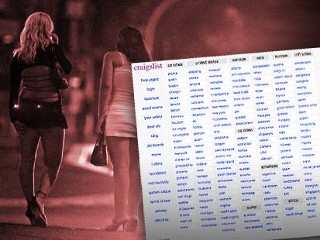 Yesterday the FBI effectively [shut down](http://thehill.com/blogs/hillicon-valley/technology/156429-fbi-shuts-down-online-poker-sites) three of the largest gambling sites online and indicted their executives. From a tech policy perspective, these events highlight how central intermediary control is to the regulation of the internet.
Yesterday the FBI effectively [shut down](http://thehill.com/blogs/hillicon-valley/technology/156429-fbi-shuts-down-online-poker-sites) three of the largest gambling sites online and indicted their executives. From a tech policy perspective, these events highlight how central intermediary control is to the regulation of the internet.
Department of Justice lawyers were able to take down the sites using the same tools we’ve [seen DHS use](http://techland.time.com/2011/02/17/operation-protect-our-children-accidentally-shutters-84000-sites/) against alleged pirate and child porn sites: they seize the domain names. Because the sites are hosted overseas (where online gambling is legal), the feds can’t physically shut down the servers, so they do the next best thing. They get a seizure warrant for the domain names that point to the servers and [force the domain name registrars](http://pokerati.com/2011/04/15/poker-panic-11-update-on-domain-name-seizures/) to point them instead to a government IP address, such as [50.17.223.71](http://50.17.223.71). The most popular TLDs, including .com, .net, .org, and .info, have registrars that are American companies within U.S. jurisdiction.
Another intermediary point of control for the federal government are payment processors. The indictments revealed yesterday relate to violations of the [Unlawful Internet Gambling Enforcement Act](http://www.firstamendment.com/site-articles/UIEGA/), which makes it illegal for banks and processors like Visa, MasterCard and PayPal to let consenting adults use their money to gamble online. According to the DOJ, in order to let them bet, the poker sites “arranged for the money received from U.S. gamblers to be disguised as payments to hundreds of non-existent online merchants purporting to sell merchandise such as jewelry and golf balls.” ([PDF](http://www.wired.com/images_blogs/threatlevel/2011/04/scheinbergetalindictmentpr.pdf))
Now, imagine if there were no intermediaries.
[In my TIME.com Techland column today, I write about Bitcoin](http://techland.time.com/2011/04/16/online-cash-bitcoin-could-challenge-governments/), a completely decentralized and anonymous virtual currency that I think will be revolutionary.
>Because Bitcoin is an open-source project, and because the database exists only in the distributed peer-to-peer network created by its users, there is no Bitcoin company to raid, subpoena or shut down. Even if the Bitcoin.org site were taken offline and the Sourceforge project removed, the currency would be unaffected. Like BitTorrent, taking down any of the individual computers that make up the peer-to-peer system would have little effect on the rest of the network. And because the currency is truly anonymous, there are no identities to trace.
And if a P2P currency can make it so that there is no fiscal intermediary to regulate, how about a distributed DNS system so that there are no registrars to coerce? This is something Peter Sunde of Pirate Bay fame [has been working on](http://www.wired.co.uk/news/archive/2010-12/02/peter-sunde-p2p-dns). These ideas may sound radical and far-fetched, but if we truly want to see an online regime of “[denationalized liberalism](http://techliberation.com/2010/11/28/mueller%E2%80%99s-networks-and-states-classical-liberalism-for-the-information-age/),” as Milton Mueller puts it, then getting rid of the intermediaries in the net’s infrastructure might be the best path forward.
Again, check out [my piece in TIME](http://techland.time.com/2011/04/16/online-cash-bitcoin-could-challenge-governments/) for a thorough explanation of Bitcoin and its implications. I plan to be writing about it a lot more and devote some of my research time to it.

 If this
If this 
 During my summer internship at
During my summer internship at  The Worst:
The Worst: The Technology Liberation Front is the tech policy blog dedicated to keeping politicians' hands off the 'net and everything else related to technology.
The Technology Liberation Front is the tech policy blog dedicated to keeping politicians' hands off the 'net and everything else related to technology.